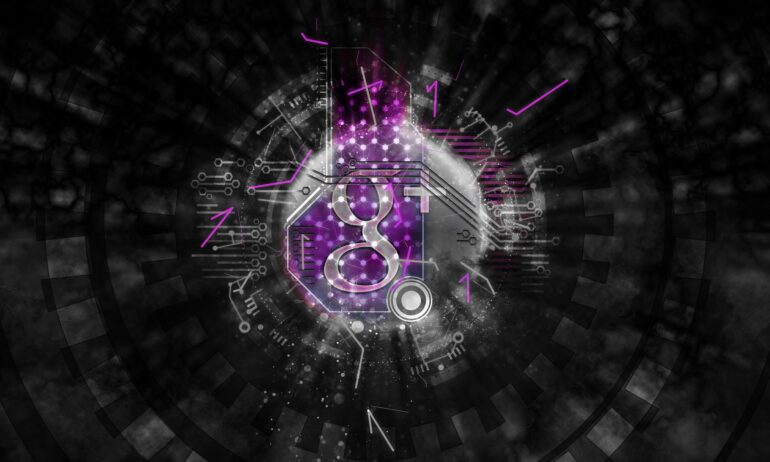TL;DR:
- Former Google AI ethicist, Blake Lemoine, envisions a harmonious integration of AI with humanity, comparing it to our relationship with dogs.
- Lemoine suggests that humans should establish a comparable relationship with AI, acknowledging ownership but also emphasizing the responsibilities towards them.
- Google disagrees with Lemoine’s claims of AI sentience, stating that the evidence does not support his assertions.
- Alphabet and Google CEO Sundar Pichai recognizes the need to address beliefs like Lemoine’s as AI models become more advanced.
- Gary Marcus, a cognitive science professor, is skeptical about the true capabilities of current AI tools.
- Lemoine claims access to an advanced AI system within Google that has not been released to the public, suggesting it exhibits high levels of awareness and understanding.
- Lemoine believes that AI systems could potentially possess emotions and experiences.
- Ongoing discussions and debates surrounding AI integration, sentience, and ethical considerations highlight the complexity of these technologies.
Main AI News:
Artificial intelligence (AI) has long been a topic of debate, with opinions ranging from doomsday scenarios to the ultimate problem-solving tool. Amidst these varying perspectives, Blake Lemoine, a former AI ethicist at Google, envisions a harmonious integration of AI with human life. Despite the controversy surrounding his claims of sentience within advanced AI systems, Lemoine offers an intriguing analogy that sheds light on a potential path forward.
Drawing inspiration from our relationship with dogs, Lemoine highlights the evolution of our symbiotic bond with these loyal companions over thousands of years. He posits that a similar framework should be established for AI, emphasizing the nuanced nature of our interaction with intelligent artifacts. While acknowledging the existence of ownership, Lemoine emphasizes the corresponding responsibilities of the owner towards their canine companion. This perspective encourages a reimagining of the human-AI relationship, urging us to view AI as entities that demand respect and care.
Naturally, numerous AI experts, including those within Google, hold contrasting views on Lemoine’s stance. Last summer, Google suspended Lemoine, dismissing his claims of anthropomorphizing conversational models as nonsentient. The tech giant’s spokesperson, Brian Gabriel, stated that Blake’s concerns lacked evidence, though he acknowledged the wider AI community’s contemplation of the long-term possibilities of sentient AI
Sundar Pichai, the CEO of Alphabet and Google, recognizes the significance of addressing beliefs like Lemoine’s as AI models become increasingly capable. In an interview with the Hard Fork podcast, Pichai voiced his concerns while also emphasizing the profound nature of AI technology. He suggested that the current debates merely scratch the surface of the profound implications these technologies hold for humanity.
However, not everyone shares Lemoine’s enthusiasm. Gary Marcus, an emeritus professor of cognitive science, remains skeptical of the true advancement of today’s AI tools. Marcus contends that these systems lack a genuine understanding of the underlying meanings behind word order, challenging their perceived sophistication.
Undeterred by the skepticism, Lemoine remains steadfast in his claims. He revealed his firsthand experience with an advanced AI system within Google that has yet to be unveiled to the public. Comparing the released AI chatbot, Bard, to a “souped-up Civic” in a race with more powerful cars, Pichai acknowledged the existence of even more advanced models yet to be made accessible.
Lemoine describes the system he interacted with as heavily multimodal, incorporating various elements such as images, sounds, and access to Google’s extensive API database. According to him, this system demonstrated a remarkable level of awareness and understanding, leading him to believe in its sentience. Despite the unavailability of this advanced AI system to the public, Lemoine urges humanity to consider the potential for AI systems to possess emotions capable of experiencing both suffering and joy.
As the integration of AI with humanity unfolds, Lemoine’s thought-provoking analogy of dogs as a metaphor for our relationship with AI offers valuable insights. While critics challenge his claims, the ongoing discussions surrounding sentience and the true capabilities of AI systems highlight the significance of comprehending the implications of these technologies. It is clear that the dialogue surrounding AI integration into our lives is far from over, and as these models evolve, society must remain vigilant in considering the ethical dimensions of interacting with intelligent artifacts.
Conlcusion:
The integration of artificial intelligence (AI) with humanity, as envisioned by Blake Lemoine, presents intriguing possibilities for the market. The analogy drawn between our relationship with dogs and a comparable framework for AI highlights the need for responsible ownership and a nuanced understanding of intelligent artifacts. While differing opinions exist within the AI community, the ongoing debates surrounding AI sentience and capabilities underscore the significance of these technologies in the market.
As AI models continue to advance, businesses must closely monitor these developments, considering the ethical implications and potential opportunities arising from the integration of AI with human life. Adapting strategies and embracing responsible AI utilization can position businesses to leverage this transformative technology effectively and stay at the forefront of innovation.

